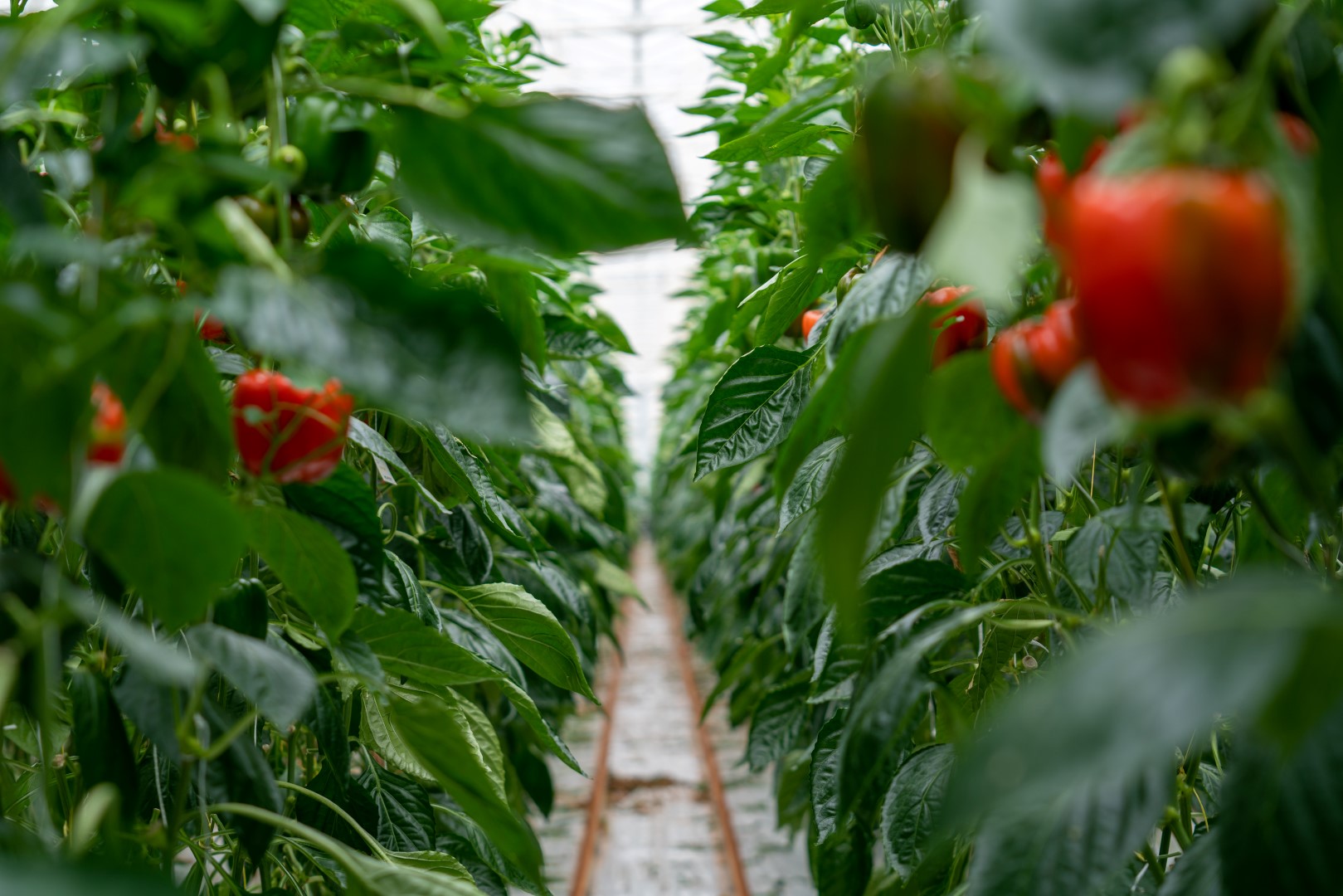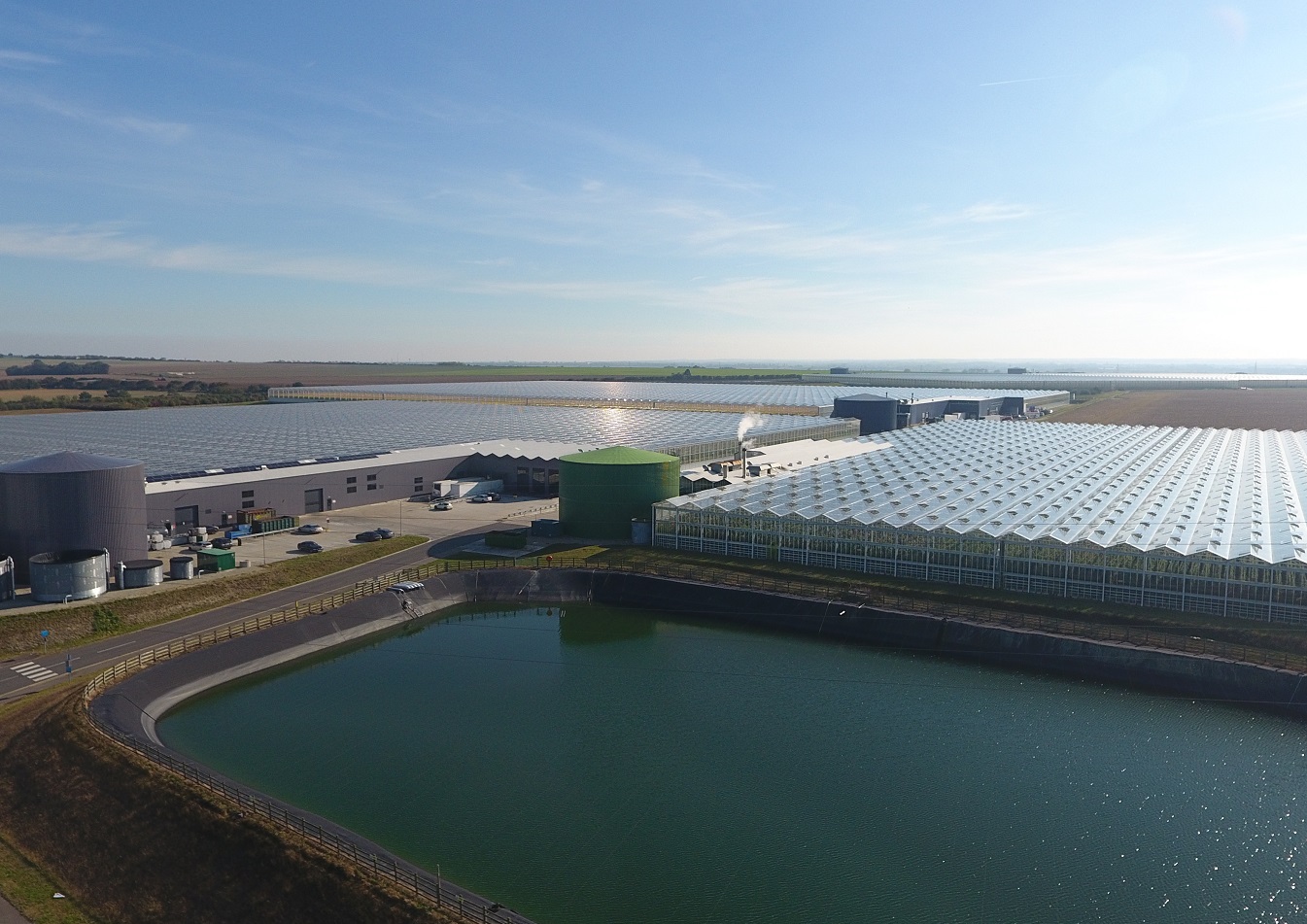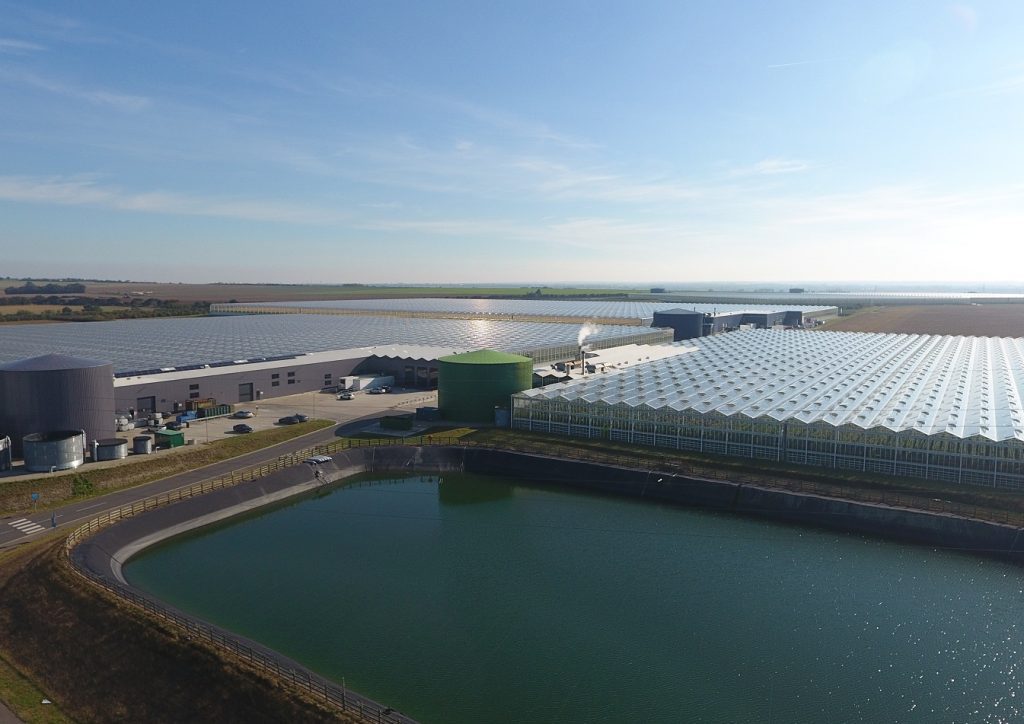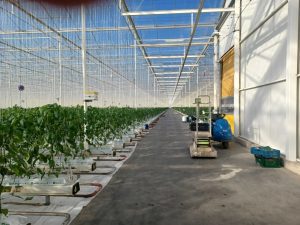In mid-2023, the South East Rivers Trust began working with Thanet Earth, the UK’s largest glasshouse grower, to help the business become even more water resilient. They also need to negotiate upcoming changes in legislation. Dr Sam Hughes, our Senior Water and Land Stewardship Officer, gives an update on our year-long project with them.
The South East of England is classed as water stressed, with demand from businesses and residents set to exceed supply by 2030. Thanet Earth, an extremely successful fresh produce business, sits in one of the driest corners of the south east – the Isle of Thanet.
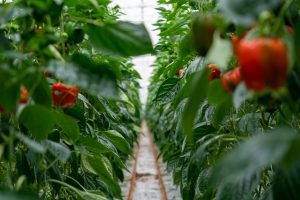
The company is already highly innovative about sourcing water for its annual production of 400 million tomatoes, 30 million cucumbers and 24 million peppers. As well as harvesting condensation and rainwater its biggest water efficiency method is a recirculation concept: all the run-off water not absorbed by the plants is collected, filtrated and re-used again and again.
This supplements some mains supply and groundwater abstraction – and the latter is a key focus of our work with the company.
Our Water and Land Stewardship team’s first report for Thanet Earth has outlined the current and future abstraction situation in the Stour catchment.
In particular, we have referenced what the implications will be from 2028, as a result of the section 88 of the Environment Act 2021, which refers specifically to water abstraction and provides for certain modifications to be implemented where change is considered necessary.
Our next steps are to facilitate a series of meetings between Thanet Earth and key water experts. The meetings aim to build relationships with organisations such as the Environment Agency to facilitate dialogue on what the Environment Act will mean for them and how much water they can abstract.
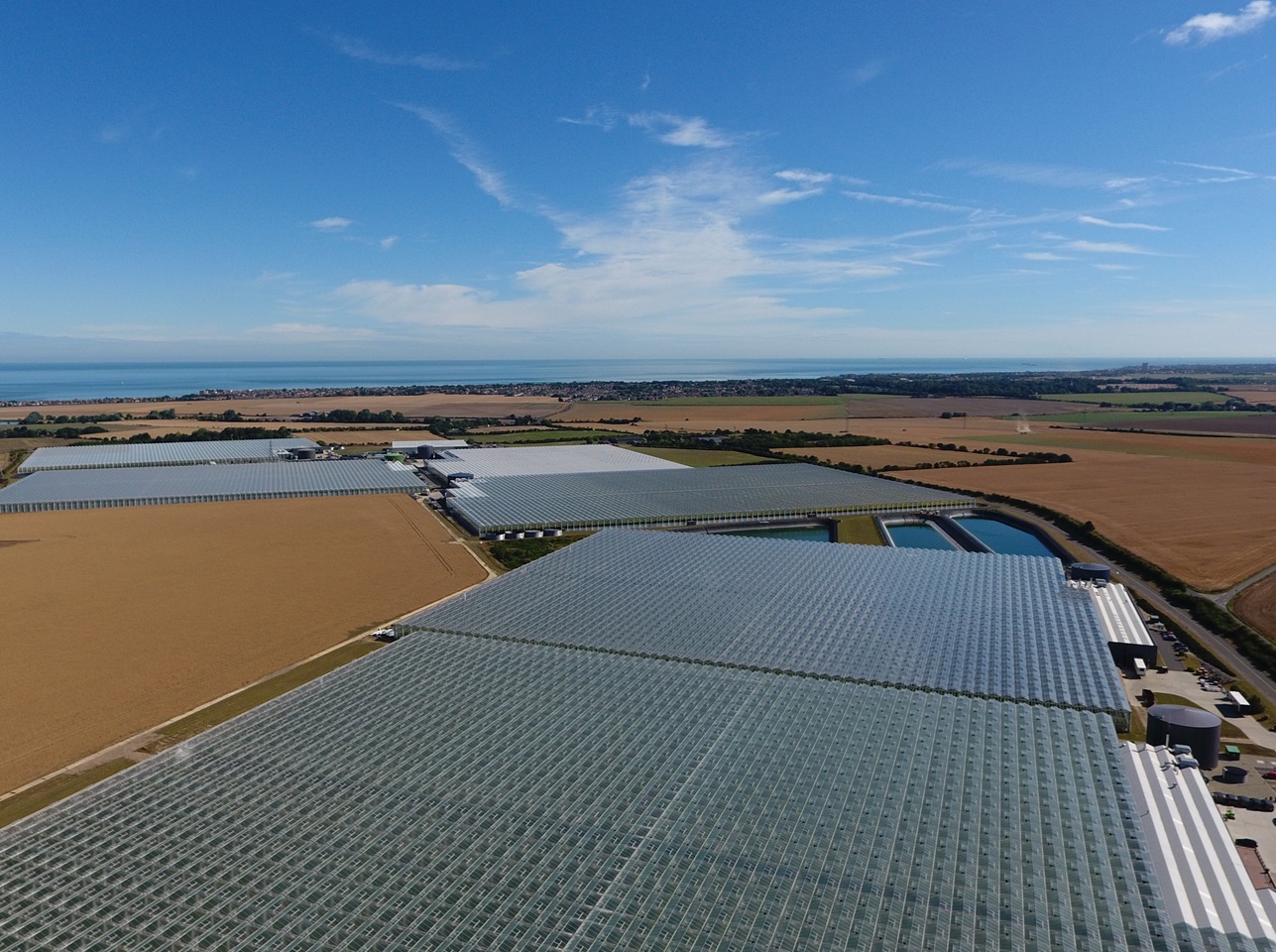
We will facilitate meetings with Southern Water, Thanet Earth’s supplier, to forge a closer working relationship and explore the potential for water sharing or trading through the platform developed by Kent County Council. With businesses facing a “use it or lose it” situation in the not too distant future when the Act is implemented, if they do not abstract all the water they are entitled to under licence, sharing with neighbouring abstractors could be a way to help meet demand.
We are also planning a workshop in early 2024 on Water Abstraction Groups to encourage working collectively for greater water resilience.
Our project with Thanet Earth is part of our Holistic Water For Horticulture [HWH] work, an initiative that supports growers across Kent with sustainable water management.
The HWH project supports food and drink businesses through the Courtauld Commitment 2030 Water Roadmap, a voluntary commitment that supermarkets, food brands and the businesses that supply them sign up to protect critical water resources for food production, nature and local communities.
The key target of the C2030 roadmap is that 50% of the UK’s fresh food is sourced from areas with sustainable water management.
Would you like us to visit your farm or business and develop a plan on using water? Contact us by clicking on this link.

